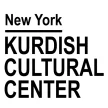"The City of My Heart" by Kamel Emami
The City of My Heart
I say the city of my heart is full of meadows; I will go
Mind says no, it’s a city full of drunken hooligans; don’t go.
I say it’s the center of heaven; I will go
Mind says it’s the Satan’s hunting spot; don’t go
I say it’s a safe haven for the youth; I will go.
Mind says wait, it’s a complete wreck; don’t go
I say it is a beautiful palace; I must go
Mind says but fairies have ruined it; don’t go
I say it is the hermit’s hideout; I will go
Mind says jealousy has taken over; don’t go.
I say it is a shelter in the storm; I will go
Mind says it’s badly cracked; don’t go
Kamel’s confused from all that endless argument
I say it is good to go; mind says you’d better not to.
—Kamel Emami (Awat), The City of Heart
Short Analysis of the Poem
This poem by Kamel Emami (1903–89) was written in 1968 in the form of a quatorzain. It addresses the common challenge that all human beings face during their lifetime: the battle between heart and mind. The poet artistically depicts this struggle with his words, suggesting that he grapples with this conflict as he writes.
From the opening lines, the reader is introduced to the battle, prompting curiosity about the poem’s unfolding. Will the heart triumph, or will the mind prevail? In this poem, the heart symbolizes adventurous optimism, while the mind represents pusillanimous pessimism. We often expect poets, filled with emotions and passions, to follow their hearts; however, this is not the case here. The poet hesitates about which path to take, offering a new perspective on our expectations of poets. Emami conveys that even a poet can find himself indecisive between heart and mind, ultimately surprising his readers by remaining on the fence at the end of the poem.
The poem may also convey a nationalistic sentiment. While the heart urges Kamel to join the revolutionaries and fight against the oppressors of his occupied homeland, Kurdistan, the mind cautions him, “It’s a complete wreck; don’t go.” In this context, the mind serves as an ego, advising against following his id. Yet why shouldn’t the poet follow his heart and defend Kurdistan—a land that, though divided and occupied, resides in the hearts of every conscious Kurd? Even if we cannot locate Kurdistan on a map, we will find it in the hearts of all Kurdish people. Sometimes it is not wise to heed the pessimism of the mind; it may not reflect the truth.
The Poem in Sorani Kurdish
شاری دڵ
من دەڵێم شاری دڵم باغ و گوڵستانە، دەچم
عەقڵ ئەڵێ نا، قەسەبەی شۆڕشی مەستانە، نەچی
من دەڵێم نوختەیی ئەو ڕەوزەیی ڕیزوانە، دەچم
ئەو دەڵێ نا، ڕەشە، جێڕاوگەیی شەیتانە، نەچی
من دەڵێم مەسکەن و ئارامگەیی جانانە، دەچم
ئەو دەڵێ سەربەسەری تێک چووە، وێرانە، نەچی
من دەڵێم جێگەیی هەر شێت و جنوونانە، دەچم
ئەو دەڵێ نا، زەدەیی پەنجەیی پەرییانە، نەچی
من دەڵێم مەرکەزی ئەسراری حەریفانە، دەچم
ئەو دەڵێ جێ تەمەعی چاوی حەسوودانە، نەچی
من دەڵێم وەختی خەتەر مەئمەن و قەڵغانە، دەچم
ئەو دەڵێ کونکونە، جێگەی سەرەپەیکانە، نەچی
لەو هەموو چوون و نەچوونە سەری سووڕ ما کامیل
من دەڵێم جوانە بچم، ئەو دەڵێ وا جوانە، نەچی
سەید کامیل ئیمامی (ئاوات)
شاری دڵ، لا٢٣٦
 Dastan Galali, who wrote the analysis and translated the poem, is a literary translator and academic based in Hewlêr.
Dastan Galali, who wrote the analysis and translated the poem, is a literary translator and academic based in Hewlêr.















